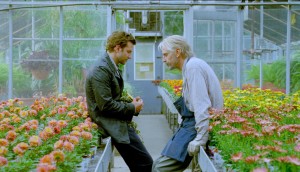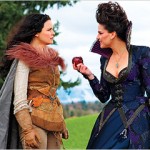 Like its main character, an author played by Bradley Cooper, The Words wants to be profound and timeless, but cannot arise above basic hackery.
Like its main character, an author played by Bradley Cooper, The Words wants to be profound and timeless, but cannot arise above basic hackery.
A movie about literary aspirations should at least have a coherent plot, something The Words sadly lacks.
The film opens as Clay Hammond (Dennis Quaid) opens his book reading at his flashy author event. He is reading from his acclaimed novel The Words. An adoring fan (Oliva Wilde) soaks up every syllable and lures him into a wine-soaked discussion of his work and life.
In his novel, which is then acted out on screen, a young aspiring author named, improbably, Rory Jansen taps away his life on his computer. He lives with his adored girl (and later wife) Dora (Zoe Saldana) in a postage stamp Brooklyn apartment, subsisting on love and dreams. Rory devotes himself to becoming a good writer – or, barring that, at least a published writer. Accumulating rejection slips and bills, he does not let the dream die.
Cooper and Saldana, a real-life couple, have the kind of easy chemistry that makes their romance and optimistic life entirely believable. Cooper’s acting is fully convincing, and he has the best role in the film.
As an author, Rory is good. But not quite good enough. He lives in the space between almost achievable dream and hopeful reality.
When Rory finds an old briefcase with a manuscript in it, he recognizes in the anonymous pages the greatness he lacks in himself. The choice to take credit for the book happens in barely recognizable stages. He passively flows into plagiarism rather than actively pursues it.
And the living is fine.
Accolades, awards, and wealth follow in the book’s wake. Only Rory knows it was never his, and even he half believes it is.
But shortcuts have a way of catching up to those that choose them, as they do with Rory. An old man played by Jeremy Irons shuffles into his life. The old man has his own back story, one that is told in yet another story within a story within a story. His insufferably cliche tale involves love and death with a French girl (a beautiful Nora Arnezeder) in the wake of World War II.
As internal conflict-driven tales go, Rory’s is not bad, really, and it even became briefly interesting as Rory faces the responsibility for his actions.
However, the way the movie is structured, the audience is painfully aware that Rory and Dora and the old man and his French beauty are fictional characters. Their story is an allegory or morality tale.
The real story should lie with Clay Hammond and his slightly menacing, scarily sexy fan.
Here the movie falters, offers a brief resolution that resolves nothing, and leaves you wondering what just happened.
It’s a shame, too, because the set up of Rory faced with the choice of whether to right his wrong was the only fresh and interesting part of the film. As person after person makes the case for him to let matters lie, the only one with clear moral vision that his actions were entirely wrong becomes Rory himself.
It was briefly refreshing to see that kind of clarity and conflict on the screen, a man perhaps choosing an extremely difficult moral absolute over seductive and convenient moral ambiguity.
But, alas, as they say in literary circles.
As quickly as the moment comes, it fades back into surface-deep moral philosophizing between the real author and his grad student groupie, ambiguous answers, and a veneer of sexual attraction that confuses everything. Rory is interesting. Clay Hammond is a pretentious bore.
Too bad it wasn’t Rory’s movie, after all.












